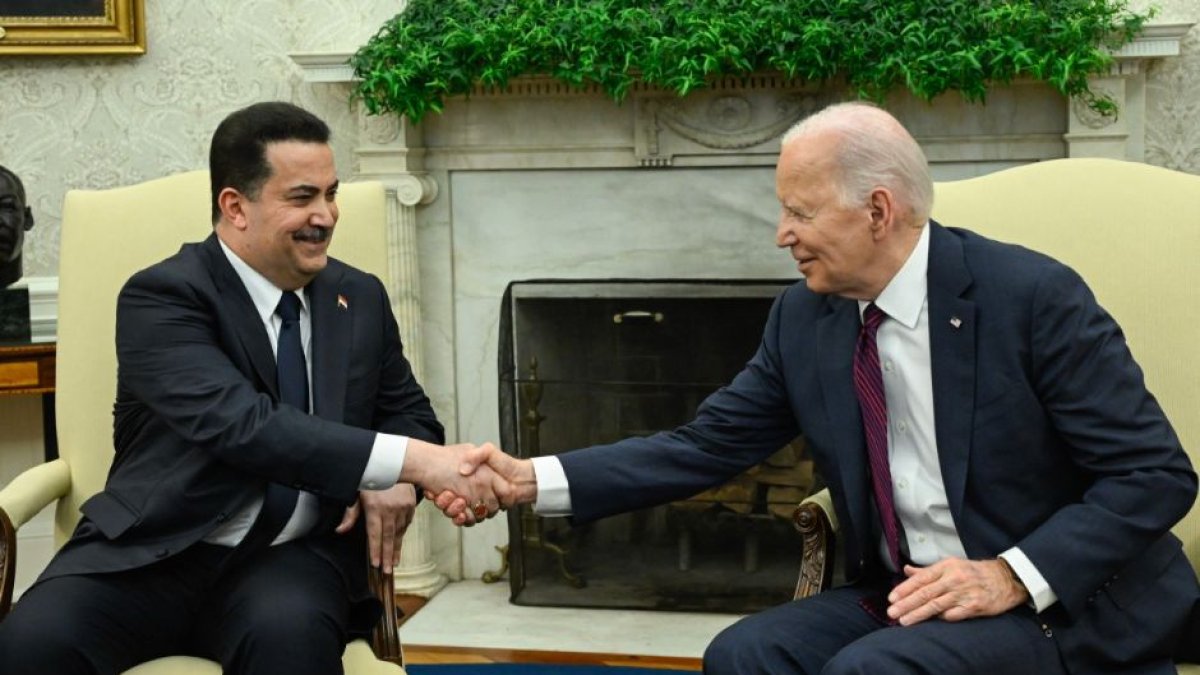Biden meets with Iraqi prime minister amid rising tensions in the Middle East
During the meeting, topics such as the stability of the region, the security of Iraq, and other aspects of bilateral interest, including economic and trade issues, were discussed.

(Andrew Caballero-Reynolds/ AFP)
President Joe Biden received Iraqi Prime Minister Mohammed Shia al-Sudani on Monday amid rising tensions in the Middle East region, exacerbated not only by the war in Gaza but also by Iran's recent attack on Israel.
The Iraqi prime minister's visit to Washington was scheduled before the weekend's latest events and was primarily intended to discuss relations between the United States and Iraq. However, recent Iranian attacks, some of which were launched from Iraq (by Iranian-backed groups), became an additional topic of the meeting.
At the beginning of the meeting in the Oval Office, Biden reiterated the United States' commitment to Israel's security, describing the partnership between both countries as fundamental for the region and the world.
"The United States is committed to Israel's security (...) The partnership between Iraq and the United States is critical. We've seen over the last decade as our troops have served side by side to help defeat ISIS, and we've seen this in our Strategic Framework Agreement, as well," Biden said.
For his part, the Iraqi prime minister noted the sensitivity of the moment due to Saturday's attack and Israel's war against Hamas, urging the expansion of the conflict to be stopped. "We encourage all (..) to protect the safety and security of the region," he expressed.
According to reports, the talks between Biden and al-Sudani addressed not only regional conflicts but also economic, trade and energy issues.
"The conversation ranged from regional stability and expanding opportunities for Iraqi families to reinforcing Iraq's sovereignty and security," Joe Biden said in a statement published on social media.
The United States and Iraq have been in talks since January to end the coalition created to fight the Islamic State, in which about 2,000 American troops remain in Iraq under an agreement with Baghdad. Iraqi officials have periodically called for the withdrawal of these forces.
Although Iraqi officials have periodically called for the withdrawal of these forces, the resurgence of an Afghan branch of the extremist group ISIS-K has expanded debate on the issue.

























